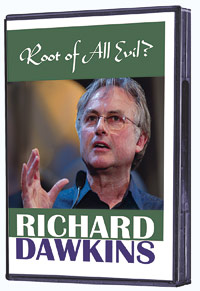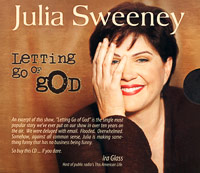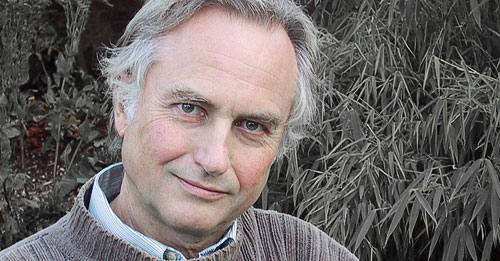
Dr. Richard Dawkins (photograph by Lalla Ward)
In this week’s eSkeptic we present not one, but two reviews of Richard Dawkins’ book, The God Delusion (Houghton Mifflin, 2006, ISBN: 0618680004). The first review was written by Norman Levitt and the second by Michael Shermer.
Norman Levitt is a mathematician at Rutgers University. He has written two books on science and culture Prometheus Bedeviled and (with Paul R. Gross) Higher Superstition. As well, he is co-editor of The Flight from Science and Reason. Recent publications, in addition to book reviews in this journal, include a chapter on pseudoscience and pseudohistory in Archaeological Fantasies (ed. G. Fagan). His other interests include Civil War history, Mozart operas, and making silly faces at his grandsons.
Michael Shermer is the Publisher of Skeptic magazine (www.skeptic.com), the Executive Director of the Skeptics Society, and a monthly columnist for Scientific American (www.sciam.com). He is the author of Why Darwin Matters, The Science of Good and Evil, How We Believe, and Why People Believe Weird Things. Shermer’s review recently appeared in Science magazine (vol. 315, January 2007).
Review # 1 of

What a Friend We Have in Dawkins
by Norman Levitt
Discourse in this country is sometimes held in such a death-grip by religion that a genial “up yours” directed thereto is, perhaps, the only way to initiate a meaningful conversation on matters theological. Dawkins certainly supplies one in his recent book, The God Delusion. He is the Voice of Faith and Inspiration (as a fundamentalist radio station in my neighborhood used to style itself) though the faith, of course, is in the penetrating power of human reason in the absence of any cosmic Imaginary Friend, while what he inspires is chiefly a determination not to be intimidated by the religiosity that saturates our culture.
Dawkins is a wondrously efficient and beguiling writer — colloquial, unpretentious, and direct, notwithstanding his deep erudition and the exacting reasoning he continually deploys. The obvious comparison is to Bertrand Russell, a thinker with similar views and a similar gift for turning a devastating phrase. But Dawkins’s virtues also include easy familiarity with popular culture, American as well as British. He cleverly uses it to gain the ear of an audience that, perhaps, would be a bit put off by a purely academic style.
It is greatly encouraging to note that this book has been on the New York Times bestseller list for over four straight months (as of January, 2007), and that this is not just a one-shot deal. It’s a good bet that ten or fifteen years ago, that wouldn’t have been the case. Until relatively recently, most mainstream publishers would likely have treated any work heaping scorn on conventional belief as pure poison, commercially. Why has the climate changed so much? My own guess is that the surge of the religious Right into the corridors of power has put many heretofore diffident unbelievers into a position where a fight-or-flight choice has to be made. Many — not only those who write in defense of godlessness, but also a wide spectrum of literate intellectuals — have chosen to fight, disdaining the notion that tactful silence best serves the right to unbelief. In any event, the infidels are now out in force to an extent not seen since the glory days of Ambrose Bierce and H.L. Mencken. Today’s primus inter pares amongst the paladins of rationalism is Dawkins, who, though British down to his toes, fights brilliantly on American soil.
The ideal readership for The God Delusion consists neither of grizzled old infidels like me nor of those still clinging to the frayed shrouds of faith who might be persuaded to turn them loose by a few more well-honed arguments. Instead, the book is best suited to a rather young reader — in the 15-to-30 demographic, say — who has recently discarded religion (or simply realized that it was never part of his or her makeup) and whose major need is for an arsenal of conceptual and rhetorical strategies to deal with peer hostility, cultural and political pressures, familial unhappiness, and so forth. Such young people require a crash course in urbanity, wit, and the uses of irony to supplement the raw intensity of new-found (dis)belief. Dawkins is a superb model in this regard, in addition to the substantive virtues of his specific arguments against theism. What he teaches is that one’s world-view may be worn lightly, that one can be in dead earnest without being a prig. He brings to the beleaguered adolescent unbeliever the welcome news that he or she has a lot of company.
Social Aspects of Religion
Many reviewers of The God Delusion have noted, with varying degrees of dismay, that Dawkins gives little quarter to “liberal” theism, that is to say, the kind of undogmatic, diffident, and even dilute faith that finds it easy to coexist with atheism in a social context, that eschews high-pressure proselytizing, and that offers no objection to evolutionary biology or cosmology or to science in general. In that sense, Dawkins is indeed a hard-liner. For him, “original sin” lies in agreeing to set aside a certain set of questions, those involving a transcendent intelligent agent presumed to rule over the universe, as an area where belief may be condoned without having to answer to the rigorous standards of evidence and logical consistency that mark science and other realms of serious inquiry. In other words, he finds it contemptible that theological propositions get an epistemological free pass even when the theology in question is easygoing and gracious to those who don’t accept it.
His reasoning is that, even coupled with tame religion, the willingness to accept some kind of “revelation” as a legitimate source of knowledge creates a fatal gap in the barricades that ought to be maintained against irrationality as such. In and of itself, it breeds an unjustifiable deference toward the kinds of knowledge-claims that bolster religion in its most self-aggrandizing and violent forms. It reduces one to arguing that this or that faith has gone astray for purely local reasons and disallows use of more powerful and general arguments that religion, per se, is undone by its ultimate reliance on unproved principles and can therefore be safely disregarded without having to examine sectarian idiosyncrasies.
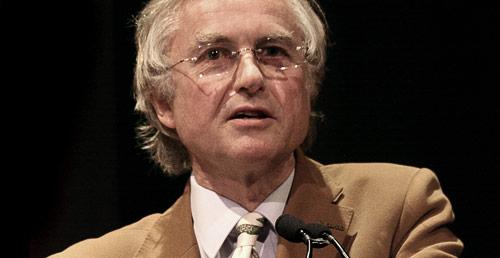
Richard Dawkins at Caltech, reading from The God Delusion. ORDER the audio/video >
On the plane of theoretical argument, I’m inclined to agree with Dawkins on this point. Yet I wish that he’d weighed the political and social costs of such an approach a bit more carefully. In the grim practical world in which we find ourselves, it doesn’t seem like a very good idea to equate Quakers, say, with Wahabist Muslims. They are very different creatures intellectually as well as behaviorally; they affect human welfare in very different ways. Indeed, if organized religion in general were universally Quaker-like, I doubt that Dawkins would be devoting so much time to fending off theism. Moreover, shrugging off these differences truncates an investigation into questions of serious historical and sociological interest, for instance, why is Western Europe so much less plagued by religious zealotry than the United States?
Another point that might have benefited from a deeper analysis is the role religion plays in fostering practical moral judgment, that is, actual ethical choices made in real life, rather than abstract assent to the moral strictures of a creed. Dawkins claims to see only two ways in which a religion can make its influence felt. First of all, there is simple fear, terror that transgression of the rules will draw down the wrath of the deity. Second, and perhaps more subtle, is the notion that merely by promulgating a comprehensive moral catalog, a religion provides a behavioral template that the nominal believer will generally follow rather than strain to devise spontaneous and personal moral judgments. Dawkins’s main point is that neither of these mechanisms seems to be consistently at work in the day-to-day life of ordinary individuals.
But I think he misses something, specifically, the role of “conversion experience” — epiphany, the infusion of the “holy spirit”, being “born again”, call it what you will. I am not suggesting, of course, that such subjective episodes argue for the objective reality of the spiritual. I merely assert that the recurrence of such experiences in many religions and many cultures, doctrinally at odds though these be, implies that they do play a role in dictating human behavior and that behavior thus conditioned will usually be closely governed by whatever moral code is endorsed by the faith that elicited the conversion experience. The moral code itself, though, might be highly arbitrary; it might demand that you give all you have to the poor, or fly a jetliner into a skyscraper, or avoid at all costs the company of menstruating women (if you’re male). The neurological and evolutionary roots of effective morality, which Dawkins explores briefly but clearly, are probably supplemented in many cases by the effects of “revelation.” Therefore, the biological roots of the latter phenomenon must also be understood if we are to comprehend the sources of moral feeling in humans.
Hobbesian Religion
Another matter that is a bit too quickly disposed of is the ancient thesis that, although religion may be nonsense, objectively speaking, the understanding that this is so ought to be confined to a secretive ruling elite. The great mass of the population, by contrast, ought to be thoroughly indoctrinated in an appropriate faith, for otherwise they will inevitably devolve into an unruly and criminous mob. Religion, false though it may be, is the only reliable instrument for shaping the average person into an obedient and well-behaved subject of state and society.
This is on its face a profoundly cynical and anti-democratic doctrine, but it is one that is endlessly revived in one form or another. The philosopher Thomas Hobbes, private atheist and emphatic authoritarian, was probably the bluntest advocate of this viewpoint. His ideas make most of us squeamish, but discomfort does not constitute a refutation, per se. This is a doctrine that directly subverts Dawkins’s ideal of a society entirely free of the trammels of religion, and must therefore be refuted if one wants to maintain that humanity would benefit, by and large, from the triumph of atheism.
Dawkins attempts to do so simply by observing that, as a matter of history, religion has done little to suppress humanity’s most vicious impulses, so that it is folly to assume that it should play a key role in the maintenance of a peaceful, orderly, and stable society. But this assumes that religion, ipso facto, produces nasty social consequences in the long run. What if, hypothetically, it were possible to create and propagate a religion that really did evoke honesty, kindliness, self-sacrifice, and even tolerance in most of its adherents? Moreover, what if it turns out that lack of faith in the transcendent, when it becomes demographically pervasive, does indeed breed selfish and callous behavior that in the end makes a society violently unstable? It is impossible to confront this doctrine head on without foreboding. Given these assumptions, we would presumably have to accept the Hobbesian rules of the game. They have, after all, been accepted, however secretively, by generations of monarchs, politicians, and, to be sure, clerics. It is reasonably certain that more than a few White House staffers, even at the highest levels, think along these lines.
I bring up these points not to champion the Hobbesian view but merely to show that it is not ridiculous a priori. There is still work to be done beyond what Dawkins has to say, work both empirical and analytic, if the idea that the general run of mankind will be better off once religion is discarded is to be sustained.
Missionary Work
Another task that Dawkins seems to have left to a future book or a future writer is that of devising an effective means for bringing about the eclipse of religion. This is a very different thing from offering arguments, no matter how well-tuned in a philosophical sense, for the absurdity and futility of religion. One is asking here how it is possible to persuade people in general to accept the consequences of valid arguments. It is a matter of sociology and psychology rather than logic and metaphysics. The God Delusion might well persuade quite a few people that, in deferring to religious faith and accepting its fundamental dictum that the world is governed by a supernatural intelligence, they have fallen into a deplorable intellectual trap that can only be escaped by a commitment to atheism. But it is certain that this will not be a general phenomenon, the negative, so to speak, of the waves of zealotry that converted entire nations to Catholicism or Islam. Where, then, is the mechanism that can indeed produce a torrent of “deconversions,” assuming that it even exists? This, to be fair, lies beyond the immediate scope of Dawkins’s book. Still, it would have been pleasant to hear him out on this question to the extent that he has formulated ideas.
The nub of the problem, I suppose, is that atheists make poor proselytizers; there are, after all, no Brownie points in heaven to be earned for bringing a soul away from Jesus. All one has to offer a potential convert is a sharpened sense of his own intellectual self-sufficiency and a glimpse of his own courage in coming to terms with the fact that the universe owes him no favors. It may well be that on a statistical basis, evolution has made us far too willing to place our trust in illusions and to take comfort in self-deceit. Sincere atheism might never be more than a minority taste, and a tiny minority at that. That wouldn’t vitiate the arguments Dawkins and countless others have offered scorning the cosmic Big Brother, but it would drastically curtail their wholehearted acceptance.
Pussyfooting
One of the most curious aspects of the success of The God Delusion is the proliferation of reviews that take the line “I, too, am an atheist — but…”, going on to savage Dawkins for his tactlessness, his dismissiveness, and his unremitting hostility to religious belief in any form. These pieces seem desperate to revert to an old-fashioned quietism, where the deal is that you are left in peace in your atheistic gloom so long as you don’t explicitly flaunt your disbelief in the public sphere. Obviously, a lot of nervousness persists, stemming from the intuition that this country’s verbal hostility to unbelief might well turn into something more physical and lots nastier. This, rather than the predictable hostility of the forthrightly religious, has been the most discouraging aspect of the uproar stirred up by Dawkins.
An ostentatious case in point is the review published in the New York Review of Books by the biologist H. Allen Orr, who creates a thicket of quibbles and demurrals just to show his displeasure at Dawkins for having written The God Delusion. Intermittently, he makes some relevant philosophical points, but his overriding intention is to spank Dawkins for his temerity in daring the wrath of the pious. When Orr rises to the defense of theologians, he is almost comical. I presume him to be an unbeliever, but he is nevertheless willing, even eager, to concede a privileged discursive space for God-talk, where the rules, if any there be, have little to do with the canons of rationality appropriate to science. He contends that theologians are experts in something or other, even if he has no idea what their subject-matter might consist of. Worse, his major allegation is that Dawkins dares to comment on these matters without the benefit of the training and indoctrination that licenses theologians to do so: “Why does Dawkins feel he has anything significant to say about religion and what gives him the sense of authority presumably needed to say it at book length?”
The text of The God Delusion itself constitutes Dawkins’s answer, and it is thoroughly adequate. Far more damning to Orr is the obliviousness that leads him to ask exactly the wrong question. The right one is “Why should theologians think that they have anything significant to say about good and evil, time and eternity, or who “rules” the universe, given that their fundamental ontological premise is worse than vacuous?” It is these theology guys, after all — priests, preachers, rabbis, imams, pandits, lamas, the whole damn lot — who not only construe a cosmology and a teleology out of their own fancies, but who then go on to tell us, often in the most minatory tone, how we have to behave, what we must and must not do, and who, among men, we are obliged to obey. Distilling it down, then, the real question becomes, “JUST WHO THE HELL DO THESE BOZOS THINK THEY ARE?” Orr is far too timorous to ask this question, which renders his criticism of Dawkins futile and anemic. Dawkins, by contrast, never lets it go, insisting that we continually ask it in the face of all the social conventions devoted to repressing it. This is where he really comes into his glory. Hallelujah!
Two Paths to Skepticism
- A review of the DVD documentary Root of All Evil? by Richard Dawkins, available exclusively through the Skeptics Society ($29.95)
- the CD set Letting Go of God by Julia Sweeney, also available through the Skeptics Society ($19.95)
Richard Dawkins has made a documentary film in connection with The God Delusion, entitled Root of All Evil?, which originally aired as a two-part series on British television. It goes over much the same ground as the book, with a script that often quotes it directly. But the argument is enhanced by the visuals and, much more, by interviews with a few striking specimens of religious fervor, most of them unpleasant characters indeed. The most memorable are a crazy-as-a-bedbug jihadist living in Palestine — ironically, a convert who started life as an American Jew — and that paragon of sleazy theocon politics, Pastor Ted Haggard of Colorado. It was obviously a rough autumn for Haggard, first being run through the mill by Dawkins and emerging from that ordeal only to find himself a national laughingstock in the wake of revelations from his paid companion of his fondness for gay sex and illicit drugs. One is prompted to meditate: Which is worse, hypocrisy or fanaticism?
The Skeptics Society has put out its own Dawkins DVD, also called The God Delusion. It is a public reading by Richard of sections from the book, delivered with admirable aplomb, and followed up by a lengthy and enlightening Q&A session. Dawkins is second to none in fielding challenging questions — virtually all of which he has no doubt heard before countless times — and turning them into an opportunity to deliver another poignant thought, always with the eloquence of an Oxford don.
The comic actress and writer Julia Sweeney has issued, on private label, a 2-CD set containing her serio-comic monolog, Letting Go of God, a portion of which aired on NPR’s radio series, This American Life, which generated a phenomenal public response. Sweeney recounts her long struggle, as an adult, with the discontents of religion. A cradle Catholic from a devout family, she found herself becoming ever more aware of the contradictions and outright absurdities of church dogma and migrated by stages from an increasingly non-literal Catholic “spirituality” to flirtations with Eastern religion and pantheism, to New Age pseudoscience (her account of the cynical and mercenary Deepak Chopra is particularly delicious).
Finally, moving into middle age, she bit the bullet and acknowledged her outright atheism. Her story is all the more admirable because she embraced unbelief without any smugness but with real regret for the sweetness of the illusions that she had to abandon and real affection for many relatives and old friends who could not themselves break away from the comforts of ritual and dogma. I couldn’t help but compare Sweeney’s “anti-conversion” experience with my own. In my case, atheism came easily without a hint of struggle or loss; in early puberty, I merely recognized explicitly that I didn’t seem to have any belief in God to let go of. Neither my family nor the local culture imposed any unpleasant consequences. Amongst my contemporaries, I had a lot of company. Thus I’d never given much thought to what might be involved in a quite different path to the same realization. Sweeney’s moving account of a trajectory much different from my own gave me a lot to think about.
Review # 2 of

Arguing for Atheism
by Michael Shermer
“There is no position on which people are so immovable as their religious beliefs. There is no more powerful ally one can claim in a debate than Jesus Christ, or God, or Allah, or whatever one calls this supreme being. The religious factions that are growing throughout our land are not using their religious clout with wisdom. They are trying to force government leaders into following their position 100 percent. If you disagree with these religious groups on a particular moral issue, they complain, they threaten you with a loss of money or votes or both. I’m frankly sick and tired of the political preachers across this country telling me … that if I want to be a moral person, I must believe in A, B, C, and D. Just who do they think they are?”
Such stirring words, spoken with such moral conviction, must surely come from an outraged liberal exasperated with the conservative climate of America today, and one can be forgiven for thinking that in a review of The God Delusion these are the words of Richard Dawkins himself, who is well known for not suffering religious fools gladly. But no. They were entered into the Congressional Record on 16 September 1981, by none other than Senator Barry Goldwater, the fountain-head of the modern conservative movement, the man whose failed 1964 run for the presidency was said to have been fulfilled in 1980 by Ronald Reagan, and the candidate whose campaign slogan was “In Your Heart You Know He’s Right.”
If Goldwater had been president for the past six years, I doubt that Dawkins would have penned such a powerful polemic against the infusion of religion into nearly every nook and cranny of public life. But here we are, and like Goldwater, Dawkins is sick and tired of being told that atheists are immoral, second-class, back-of-the-bus citizens. The God Delusion is his way of, like the Howard Beale character in the 1976 film Network, sticking his head out the window and shouting, “I’m as mad as hell, and I’m not going to take this anymore.”
But The God Delusion is so much more than a polemic. It is an exercise to “raise consciousness to the fact that to be an atheist is a realistic aspiration, and a brave and splendid one. You can be an atheist who is happy, balanced, moral, and intellectually fulfilled.” Dawkins wants atheists to quit apologizing for their religious skepticism. “On the contrary, it is something to be proud of, standing tall to face the far horizon, for atheism nearly always indicates a healthy independence of mind and, indeed, a healthy mind.”
Dawkins also wants to raise consciousness about the power of Darwin’s dangerous idea of natural selection. He believes that most people — even many scientists — do not fully understand just how powerful an idea it is. He attributes that failure to the need to be steeped and immersed in natural selection before you can truly recognize its power. In this context, natural selection “shatters the illusion of design within the domain of biology, and teaches us to be suspicious of any kind of design hypothesis in physics and cosmology as well.”
Out of obligation, of course, Dawkins reviews and offers rebuttals to all the standard arguments for God’s existence. He concentrates on dissecting the anthropic principle and dismantling intelligent design creationism. (As part of the latter efforts, he redirects the creationists’ argument from complexity to show that God must have been designed by a superintelligent designer.) He then builds a case for “why there almost certainly is no God.” The remainder of the book outlines possible evolutionary origins of morality and religious belief, a justification for being hard on religion, childhood religious indoctrination as child abuse, and an elegant commentary on the progressively changing moral zeitgeist. Dawkins closes with a tribute to the power and beauty of science, which no living writer does better.
When I received the bound galleys for The God Delusion, I cringed at the title, wishing it were more neutral (why not, say, The God Question?). As I read the book, I found myself wincing at Dawkins’s references to religious people as “faith-heads,” as being less intelligent, poor at reasoning, or even deluded, and to religious moderates as enablers of terrorism. I shudder because I have religious friends and colleagues who do not fit these descriptors, and I empathize at the pain such pejorative appellations cause them. In addition, I am not convinced by Dawkins’s argument that without religion there would be “no suicide bombers, no 9/11, no 7/7, no Crusades, no witch-hunts, no Gunpowder Plot, no Indian partition, no Israeli/Palestinian wars, no Serb/Croat/Muslim massacres, no persecution of Jews as ‘Christ-killers,’ no Northern Ireland ‘troubles’…” In my opinion, many of these events — and others often attributed solely to religion by atheists — were less religiously motivated than politically driven, or at the very least involved religion in the service of political hegemony.
I also never imagined a book with this title would ever land on bestseller lists in the United States. But I was wrong. The data have spoken. The God Delusion is a runaway bestseller, a market testimony to the hunger many people — far more, I now think, than polls reveal — have for someone in a position of prestige and power to speak for them in such an eloquent voice. Dawkins’s latest book deserves multiple readings, not just as an important work of science, but as a great work of literature.
This review recently appeared in Science magazine (vol. 315, January 2007)

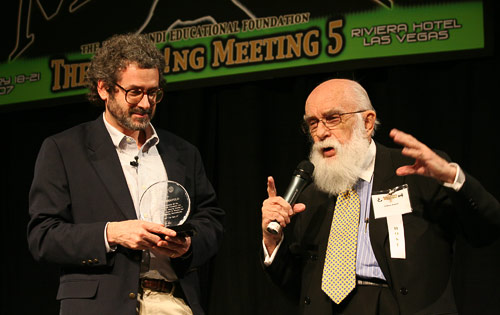
Dr. Neil Gershenfeld (Director of MIT’s Center for Bits and Atoms) with James Randi at The Amazing Meeting 5

Report from The Amazing Meeting 5!
If there were a T-shirt describing the mind-blowing experience that Derek & Swoopy had at the James Randi Educational Foundation’s Amazing Meeting 5 conference in Las Vegas last week, it might read something like this: “I went to TAM5 and all I got was this cuddly wombat.” (Oddly, that’s literal. Listen to find out more!)
This week we’ll begin sifting through our treasure trove of new audio and video, presenting some of the best candid moments from the four day brain-expanding extravaganza that was The Amazing Meeting 5. We’re very pleased to feature interviews with a cast of familiar characters — as well as some brave new voices in skepticism.
Who said this party is over? It’s just getting started.


